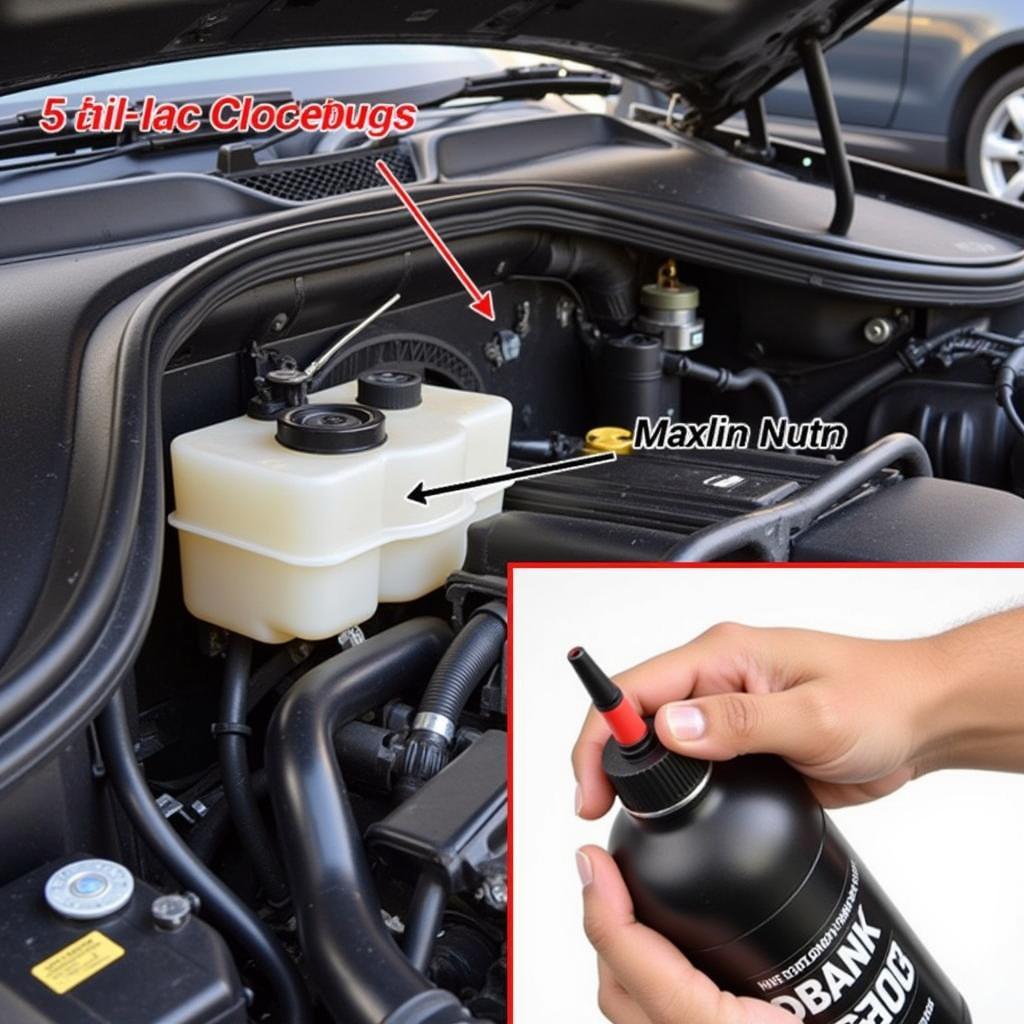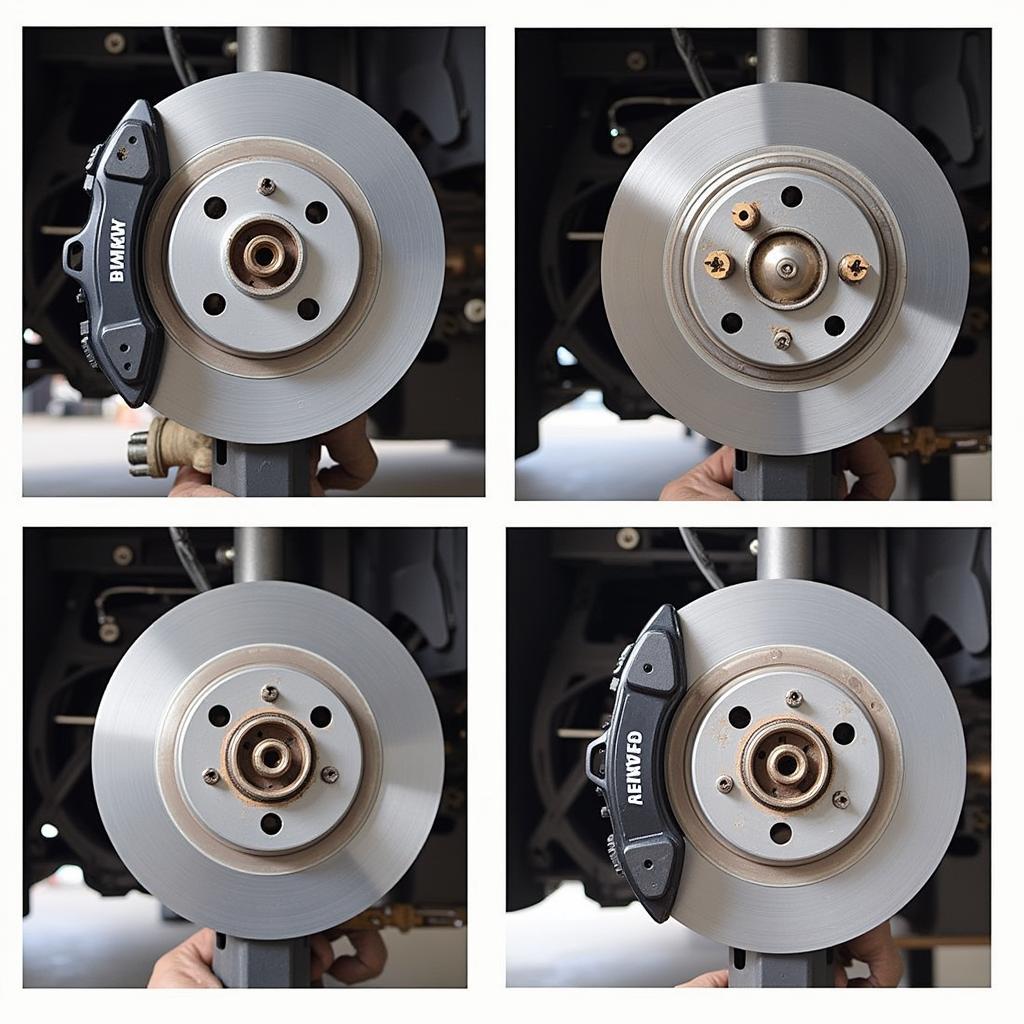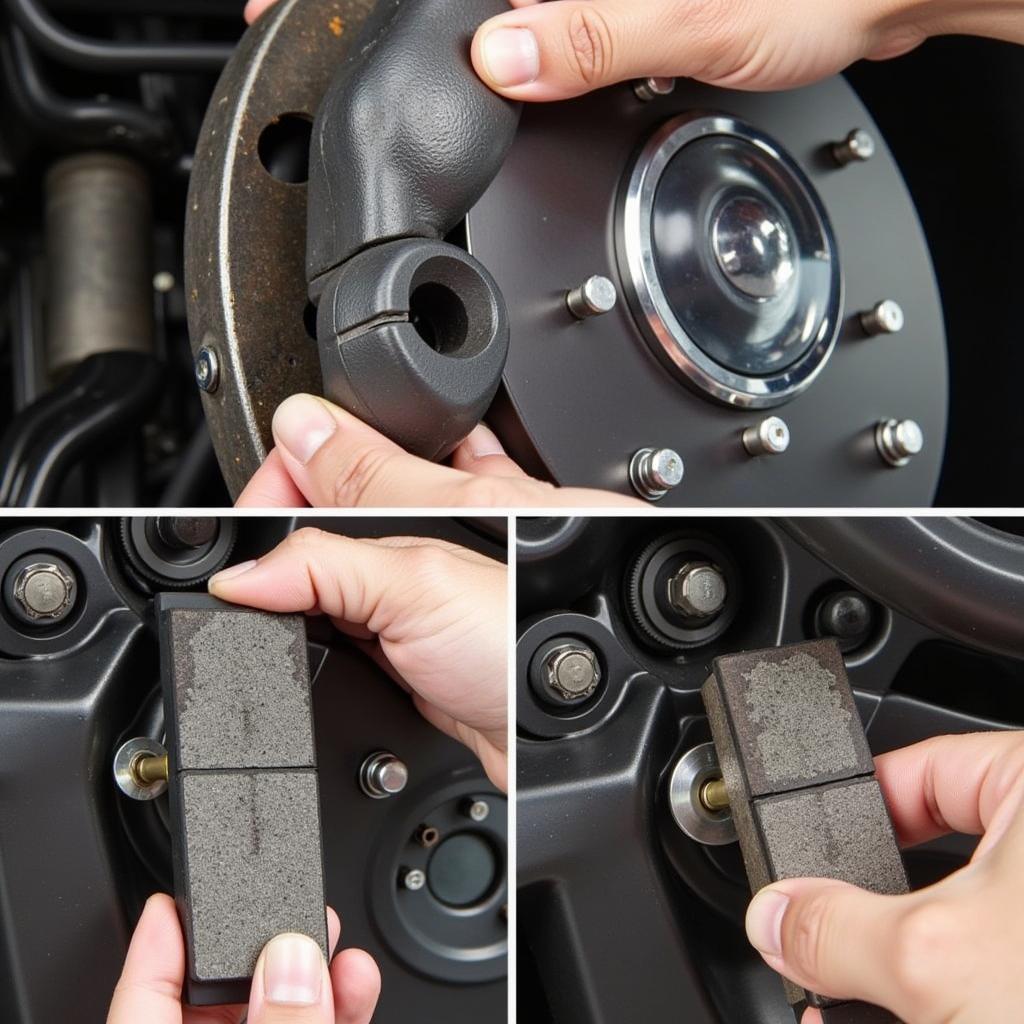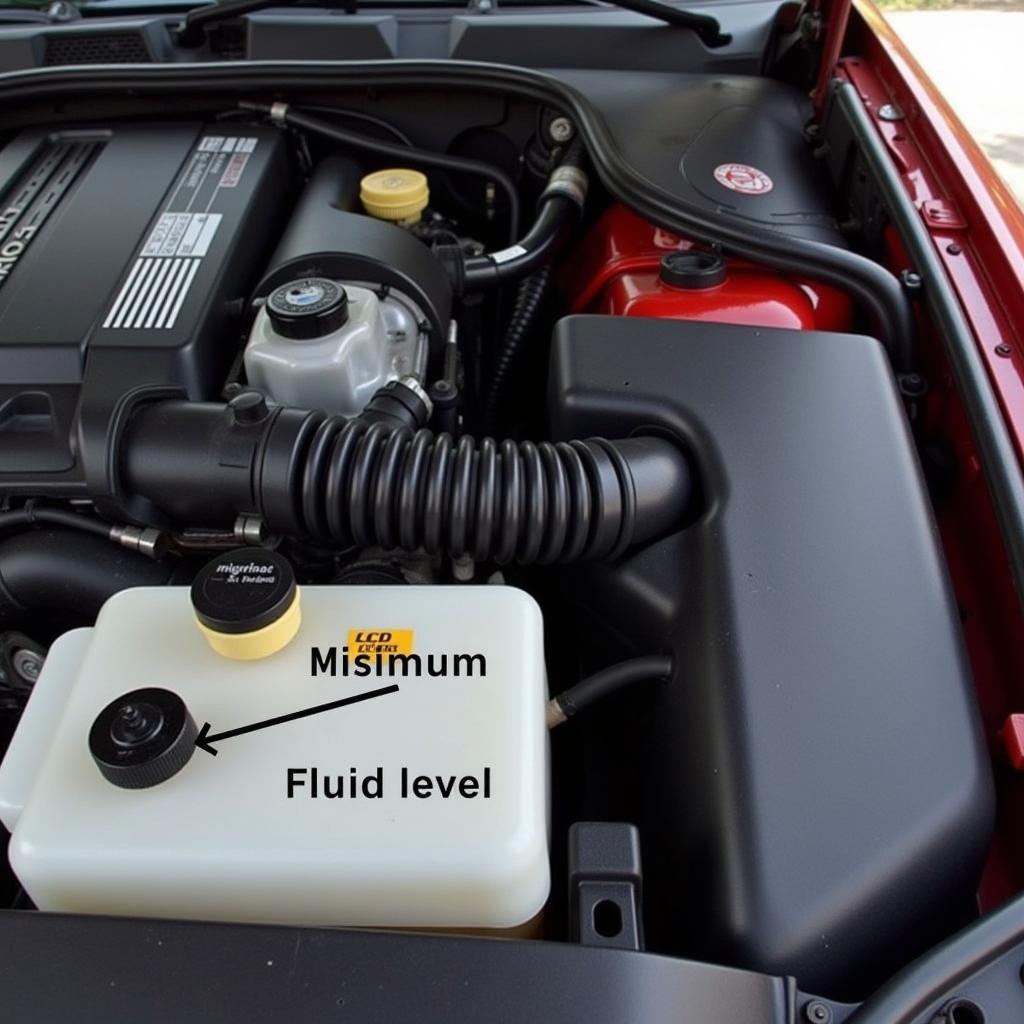The dreaded brake warning light on your 2000 BMW can be a source of anxiety. Whether it’s a 323i, 528i, or M5, understanding why this light illuminates and how to address it is crucial for your safety and the longevity of your vehicle. This article will guide you through the common causes of a 2000 BMW brake warning light, offer troubleshooting steps, and discuss solutions, including remote diagnostic and programming options.
As a specialist in automotive electrical engineering, focusing on remote diagnostics, programming, and software installation for vehicle repairs, I can tell you that a illuminated brake warning light is one of the most common concerns among BMW owners. Identifying the specific reason can range from simple checks to more complex diagnostic procedures.
One common culprit is low brake fluid. Check the brake fluid reservoir located under the hood. If the fluid level is below the minimum mark, this is likely the cause of the warning light. Top up the brake fluid with the correct DOT specification, as recommended in your owner’s manual. Remember, if you have to add brake fluid frequently, it indicates a leak that needs immediate professional attention.
Another possibility is worn brake pads. BMWs typically have brake pad wear sensors that trigger the warning light when the pads reach a certain thickness. Check your brake pads visually. If they appear thin, it’s time for a replacement. You can find more information about this in our article on bmw brake pad replacement warning.
Common Causes of the 2000 BMW Brake Warning Light
Understanding the underlying causes of the brake warning light can save you time and money. Let’s explore some of the most common reasons:
- Low Brake Fluid: This is often the simplest cause. A leak in the brake system can lead to low fluid levels.
- Worn Brake Pads: As brake pads wear down, they trigger sensors that activate the warning light.
- Faulty Brake Pad Sensor: Sometimes, the sensor itself can malfunction, even with sufficient pad thickness.
- Issues with the ABS System: Problems with the Anti-lock Braking System (ABS), such as a faulty wheel speed sensor, can illuminate the brake warning light.
- Parking Brake Engaged: While seemingly obvious, sometimes the parking brake can be partially engaged, triggering the light.
 2000 BMW Brake Fluid Reservoir Check
2000 BMW Brake Fluid Reservoir Check
Troubleshooting the 2000 BMW Brake Warning Light
Here’s a step-by-step guide to troubleshooting your 2000 BMW brake warning light:
- Check the Parking Brake: Ensure the parking brake is fully disengaged.
- Inspect Brake Fluid Level: Top up the brake fluid if it’s low, but be aware that consistent low fluid levels indicate a leak that requires professional attention.
- Visually Inspect Brake Pads: Look for signs of wear and tear. Thin brake pads require replacement. If you have a 2000 BMW 323i, you may find the information in this article helpful: 2000 bmw 323i brake warning light.
- Scan for Diagnostic Trouble Codes (DTCs): A diagnostic scanner can pinpoint the specific fault within the brake system, including ABS issues or faulty sensors.
 Inspecting BMW Brake Pads for Wear
Inspecting BMW Brake Pads for Wear
Remote Diagnostics and Programming for Your 2000 BMW
Modern technology allows for remote diagnostics and programming, offering a convenient solution for some brake warning light issues. For instance, if the issue is related to software or module programming, a remote specialist can often diagnose and rectify the problem without a physical visit. This approach can be particularly beneficial for addressing specific issues, such as those experienced by some 2000 BMW M5 owners after brake pad replacement: 2000 bmw m5 brake pad warning after brake replacement.
Why is my 2000 BMW 528i Brake Warning Light on?
Specifically for 2000 BMW 528i owners, the brake warning light could be triggered by the same issues discussed previously. You can find specific information for the 528i in our article: 2000 bmw 528i brake warning light. Remember, addressing the warning light promptly is essential for your safety and the proper functioning of your vehicle.
“Regular brake system maintenance is crucial for preventing unexpected issues,” says John Miller, a seasoned automotive engineer with over 20 years of experience. “Don’t ignore the brake warning light – it’s a sign that your BMW needs attention.”
Conclusion
The 2000 BMW brake warning light serves as a crucial indicator of potential brake system issues. From low brake fluid to worn pads or more complex ABS problems, understanding the possible causes and implementing appropriate troubleshooting steps is essential. Don’t hesitate to seek professional help when necessary. Your safety and the optimal performance of your BMW depend on a properly functioning brake system. Remember, regular maintenance can prevent many of these issues.
“Addressing brake issues promptly ensures a safe and enjoyable driving experience,” adds Miller. “Modern diagnostic techniques and remote solutions can often offer efficient and convenient repairs.”
FAQ
- Can I drive my BMW with the brake warning light on? It’s strongly advised against driving with the brake warning light on. It could indicate a serious safety issue.
- How much does it cost to fix a brake warning light issue? The cost varies depending on the cause. It could range from a simple top-up of brake fluid to a more expensive repair like replacing brake components.
- How often should I check my brake fluid? Check your brake fluid level at least once a month and before any long trips.
- What type of brake fluid should I use in my 2000 BMW? Consult your owner’s manual for the correct DOT specification.
- Can a faulty brake light switch cause the brake warning light to come on? While less common, a faulty brake light switch can sometimes trigger the brake warning light.
- Is it safe to replace brake pads myself? If you have mechanical experience, you can replace brake pads yourself. However, it’s recommended to consult a repair manual and follow the proper procedures.
- How can remote diagnostics help with my 2000 BMW’s brake warning light? Remote diagnostics can pinpoint the cause of the issue, especially software or module-related problems, potentially saving time and money. Consider exploring the resources available for the Toyota Prius brake light warning, as they might offer some insights applicable to other vehicle models: toyota prius brake light warning.


